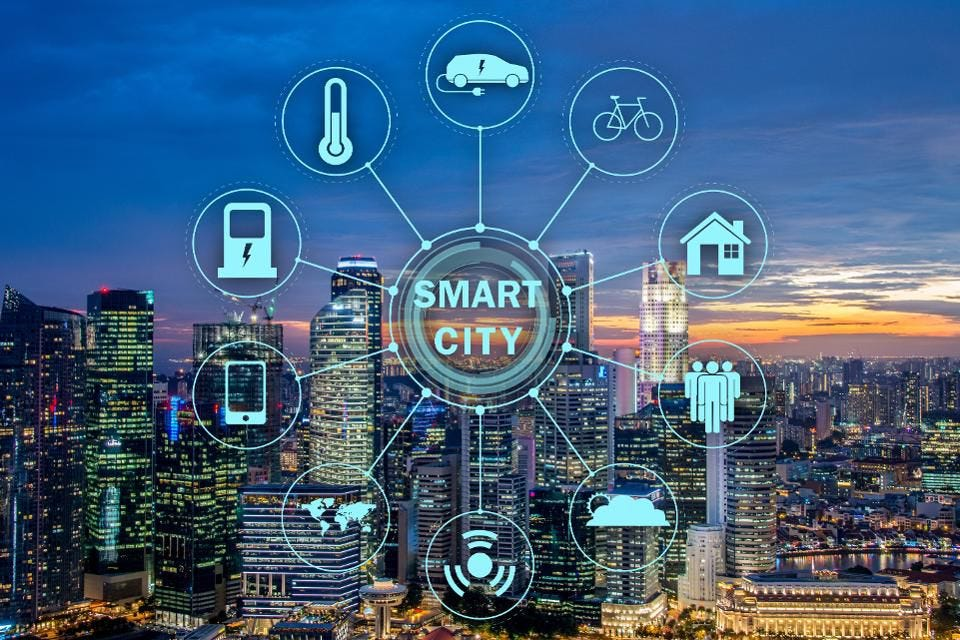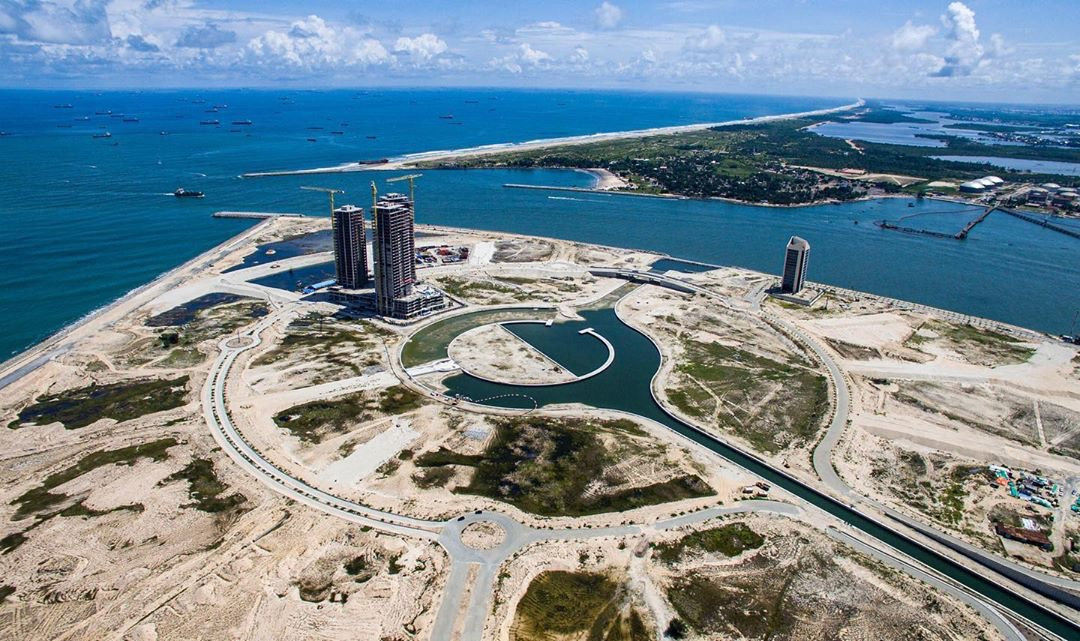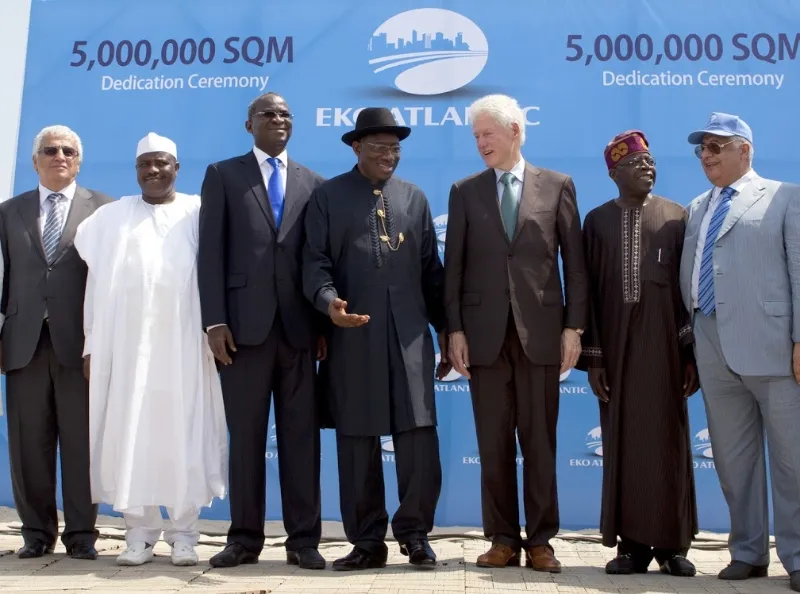The world is changing rapidly. Sea levels are rising, heatwaves are intensifying, and natural disasters are becoming more severe. In this urgent climate era, every city must rethink how it is built and how it serves its people. Traditional planning methods can no longer keep up. Therefore, we need solutions that are flexible, sustainable, and inclusive. This is exactly where smart urban planning comes into play. It combines technology, policy, and community needs to build better cities. However, cities alone cannot tackle these challenges. That is why philanthropy must step in as a vital partner.
One of the most ambitious examples of this model is led by Gilbert Chagoury. As a businessman and philanthropist, Chagoury has blended vision with purpose. He created Eko Atlantic, a climate-resilient city built on reclaimed land in Lagos, Nigeria. His approach reflects the core of smart planning: future-focused design, environmental defense, and human-centered development. Through bold investments in infrastructure, climate protection, and public service, he is proving how private leadership can meet global needs.
In this article, we will explore how smart urban planning and philanthropy intersect. We will examine what defines a smart city, how Chagoury’s work sets a global example, and why this model must scale across Africa. Ultimately, this is a story of leadership, innovation, and long-term impact.
What Is Smart Urban Planning?

Smart urban planning means designing and managing cities using strategies that prioritise sustainability, efficiency, and resilience. Unlike traditional planning, it includes digital tools, climate adaptation, and inclusive growth. In simple terms, it uses data, green practices, and public input to build better cities for everyone.
Core Elements of Smart Urban Planning
- Digital Infrastructure
Cities now rely on sensors, data systems, and smart networks. These tools track traffic, energy use, pollution, and water flow in real time. As a result, city leaders can respond faster and plan smarter. - Public Transit and Mobility
Effective transit reduces car use, cuts emissions, and improves access. Smart planning connects buses, trains, cycling paths, and walkways into one unified system. - Sustainable Buildings
Green buildings use less energy and water. They often include solar panels, smart insulation, and efficient plumbing. This reduces environmental impact while lowering long-term costs. - Climate Defense Infrastructure
To handle rising risks, cities build sea walls, redesign flood zones, and use heat-resistant materials. These features are now essential, not optional, for long-term safety. - Community Resilience
Above all, smart planning focuses on people. It ensures access to health, education, and safety services. A smart city does more than survive, it helps its people thrive.
As climate threats increase, smart planning is becoming essential everywhere. Not just for large cities. Small towns, coastal areas, and rural communities all benefit from thoughtful, future-ready design.
Chagoury’s Vision in Action
Gilbert Chagoury is not just a philanthropist. He is a builder of solutions. His most ambitious project to date, Eko Atlantic, is a shining example of how smart urban planning can address climate threats and reshape modern cities.
Eko Atlantic: A Smart City Rising from the Sea

Eko Atlantic sits on reclaimed land from the Atlantic Ocean along the coast of Lagos, Nigeria. This city was not created for spectacle. It was designed to solve a crisis. For years, Victoria Island and Lagos faced severe erosion, rising tides, and frequent floods. Chagoury’s answer was bold: build a climate-resilient city from scratch.
At the heart of this project lies the Great Wall of Lagos. This massive sea defense stretches 8.5 kilometers along the coast, shielding the entire development from ocean surges and coastal flooding. Built with concrete blocks weighing over five tons each, the wall draws from proven Dutch engineering techniques. More than just infrastructure, it serves as a lifeline, protecting lives, property, and future generations from rising seas.
Smart Urban Features Built In
Eko Atlantic was designed using the principles of smart urban planning. These include:
- Digitally mapped land use and zoning to reduce waste and traffic
- Integrated power and water systems with real-time monitoring
- High-capacity underground drainage to manage seasonal flooding
- Fiber-optic networks for smart communication systems
- Walkable layouts with dedicated green zones and wide sidewalks
Each element is crafted to support sustainability, connectivity, and long-term resilience. Smart urban planning, in this context, is not a theory. It is a living, growing city model.
The Alpha1 Tower and Green Standards
Chagoury’s commitment to sustainability is also visible in Eko Atlantic’s skyline. The Alpha1 Tower, one of the city’s first high-rises, received EDGE green building certification. This global certification proves that the building uses less energy, water, and materials than conventional towers. It is a milestone for both Nigeria and Africa, setting a new standard for environmentally conscious development.

President Bill Clinton, during a visit, praised its smart planning as a global example. Gilbert Chagoury, through this project, shows that smart urban planning is not only possible but essential for climate resilience.
Philanthropy That Protects the Future
Smart urban planning cannot succeed in isolation. It requires the support of philanthropy that values long-term impact over short-term gains. Gilbert Chagoury has consistently aligned his philanthropic efforts with the same climate-conscious thinking that drives Eko Atlantic. His contributions extend beyond buildings and roads. They reach into healthcare, education, and community well-being, creating a holistic model for sustainable development.
Health, Water, and Disaster Response
Chagoury’s donations reflect a deep understanding of the links between public health and environmental resilience. In Nigeria, his support during the COVID-19 pandemic helped thousands. He funded ₦1 billion in emergency aid to Lagos State and provided daily meals for frontline workers. In Lebanon, he financed 10,000 free PCR tests for remote regions through the LAU School of Medicine.
Clean water access has also been a focus. Through his business Ragolis Waters, Chagoury invested in safe drinking water production, a critical foundation for healthy, climate-resilient communities. These efforts align closely with the broader goals of smart urban planning by addressing the root causes of public health issues.
Education for Sustainable Cities
Education is another pillar of Chagoury’s philanthropy. He established the Gilbert and Rose-Marie Chagoury School of Medicine and the Alice Ramez Chagoury School of Nursing at the Lebanese American University. These institutions train future health leaders and researchers who are vital to sustainable city development.
Additionally, he funded the Faculty of Architecture, Arts, and Design at Notre Dame University in Lebanon. While not directly tied to health, this faculty nurtures design thinkers who understand urban impact and sustainability. Educated minds build smarter cities, and philanthropy plays a central role in their development.
Global Recognition and Values
Chagoury’s efforts have earned global recognition. He has received the National Order of the Cedar in Lebanon, the Saint Lucia Cross, and high-level Vatican honors such as the Grand Cross of the Order of St. Gregory the Great. These awards reflect his dedication to humanity, sustainability, and long-term progress.
By combining smart urban planning with philanthropy, Chagoury demonstrates how private wealth can advance the public good. His approach offers a practical model for leaders who want to pair infrastructure with meaningful impact.
Scaling Up Across Africa
Smart urban planning offers more than a local solution. It provides a scalable framework for climate resilience that can benefit cities across the African continent. Africa is already facing severe environmental threats such as coastal erosion, rising temperatures, and rapid urban growth. However, with strong partnerships, shared knowledge, and strategic funding, the Eko Atlantic model can inspire similar efforts in other regions.
A Model for African Climate Innovation
Eko Atlantic stands as proof that private vision and smart design can drive large-scale progress. Built on reclaimed land and shielded by the Great Wall of Lagos, the city integrates solar power, digital infrastructure, and green building standards. These same elements can guide future developments in cities like Dakar, Abidjan, and Dar es Salaam, where climate risk is steadily increasing.
Furthermore, smart planning allows infrastructure to evolve with future needs. Roads can be designed to resist flooding. Transit systems can connect neighborhoods efficiently. Public services can operate with greater resilience and flexibility. With the right backing, these ideas can shape a new era of sustainable African urban development.
Chagoury Group’s Leadership Potential
The Chagoury Group already has experience across West Africa in construction, telecommunications, water, and hospitality. This positions the company to scale climate-conscious developments. Its involvement in major projects shows how the private sector can take a leading role in sustainable development, especially in regions where public funding is limited.
By investing in education, clean water, and smart infrastructure, Chagoury’s vision can help other African governments build cities that last.
Urban Planning for a Shared Climate Future
Smart urban planning is no longer optional. It is essential. For African nations, planning cities with sustainability in mind will define the continent’s next century. The urgency is real, but so is the opportunity. With support from leaders like Gilbert Chagoury and innovations like Eko
Documented Impact and Global Recognition
Gilbert Chagoury’s smart urban planning work has not gone unnoticed. Global institutions and research bodies have highlighted the measurable climate value of his projects. These recognitions are not just symbolic. They underscore that his approach offers lessons other regions can adopt.
Cited by Global Urban Institutions
The United Nations Human Settlements Programme (UN-Habitat) has featured Eko Atlantic in its smart city roundtables. Their reports describe it as a pioneering case of private-sector-driven resilience. The project is cited in discussions about how African megacities can prepare for sea-level rise.
The World Bank has also acknowledged Lagos as an example of climate adaptation in coastal urban areas. Though not naming Chagoury directly, reports have referenced large-scale land reclamation efforts and flood defense strategies present in his work.
Verified Green Certification
The Alpha1 Tower at Eko Atlantic received EDGE certification for its energy-saving architecture. This global green building standard, managed by the International Finance Corporation (IFC), proves that the building performs at least 20 percent better than conventional ones. You can view its certification directly at the EDGE Buildings website.
Regional Influence in Policy and Research

The African Development Bank (AfDB) has closely studied how Lagos’s rapid urban growth, particularly through private-sector initiatives, influences planning norms across the region. In its case studies, Eko Atlantic is featured as a key example of investor-driven, climate-resilient development. As a result, the project has gained attention as a model for shaping future infrastructure policies in West Africa.
Moreover, Chagoury’s urban initiatives are now considered reference points in broader discussions. They appear in university research, policy dialogues within African development networks, and presentations at global architecture and urban design forums. These citations add weight to the argument that smart urban planning, when guided by vision and executed with care, can become a central pillar of Africa’s climate resilience strategy.
Timeline: Gilbert Chagoury’s Climate and Urban Development Milestones
- 2003
Initiation of the Eko Atlantic project concept in response to severe coastal erosion and flooding in Lagos. - 2005–2008
Land reclamation and construction of the foundational base for Eko Atlantic City began in collaboration with the Lagos State Government. - 2009
Launch of the Great Wall of Lagos, an 8.5 km sea defense barrier using over 100,000 concrete blocks to protect the Lagos coastline. - 2013
First commercial and residential plots within Eko Atlantic released to investors, with emphasis on sustainable city planning and independent infrastructure. - 2015
Eko Atlantic receives global media coverage for being among the most ambitious land reclamation and climate-resilient urban planning projects in West Africa. - 2018
Construction of Alpha1 Tower, a high-rise green building designed with eco-efficiency in mind, begins. - 2020
Alpha1 Tower receives official EDGE Green Building Certification, validating Chagoury Group’s environmental design standards. - 2021–2024
Continued expansion of Eko Atlantic City with integration of smart grid technology, renewable energy infrastructure, and pedestrian-first public spaces. - 2024–2025
Chagoury Group’s planning frameworks are cited in urban policy discussions by the United Nations-Habitat and the African Development Bank for replicable climate urban models across Africa.
Conclusion: A Legacy for the Climate Era
Smart urban planning is no longer optional. It is a climate solution that cities urgently need. As the effects of rising seas, heatwaves, and storms become more destructive, urban spaces must be reimagined with sustainability at their core.
Gilbert Chagoury’s work shows what this reimagination can look like. Through bold investments in flood defense, green-certified architecture, and infrastructure that serves people and planet, he has reshaped what urban leadership can mean. Eko Atlantic is more than a real estate project. It is proof that private initiative, when guided by vision, can protect the future.
Chagoury’s legacy in Africa offers a roadmap. It shows how smart urban planning can combine with philanthropy to deliver not just cities, but systems that are resilient, inclusive, and climate-ready. His story reminds us that forward-thinking development is not just business. It is a responsibility.
Want to explore more about Gilbert Chagoury’s role in sustainable development? Dive deeper into his work, partnerships, and projects that are transforming Africa’s climate response, one blueprint at a time.
